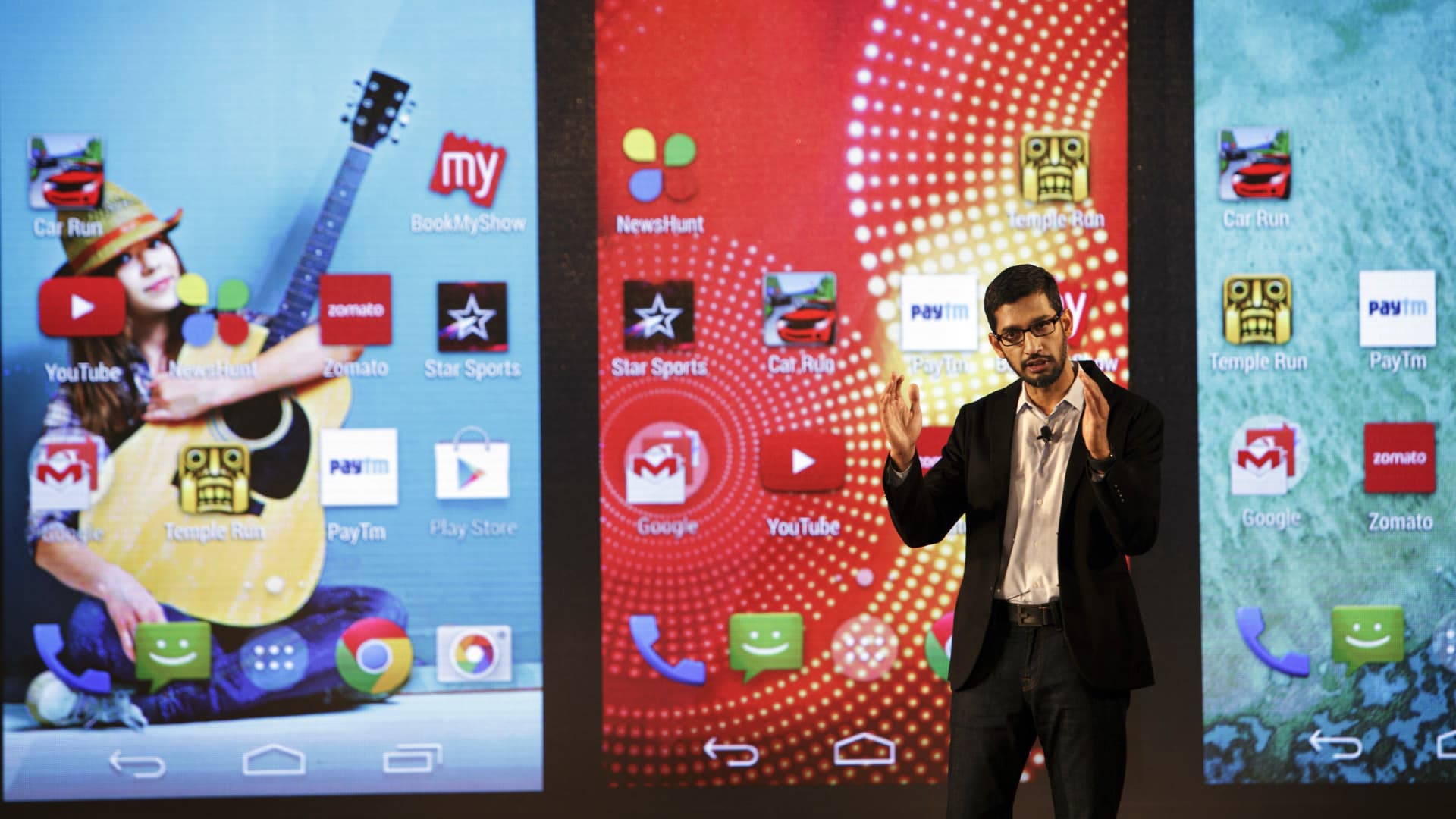
Sundar Pichai, senior vice president of Android, Chrome and Apps at Google Inc., gestures as he speaks during the company’s Android One smartphone launch event in New Delhi, India, on Monday, Sept. 15, 2014.
Kuni Takahashi | Bloomberg | Getty Images
Google and Spotify said on Wednesday that a future version of the Spotify app will allow users to sign up inside the app to pay Spotify directly for a subscription. Spotify’s alternative billing system will be offered in addition to Google Play payments, the companies said.
The move is the most significant concession so far from a major mobile app store to allow third-party billing systems inside apps, which has become a major focus for regulators around the world.
Shares of Spotify popped about 4.5% in after-hours trading on the news.
Historically, on Google Play, as well as Apple’s App Store, developers usually can’t solicit credit card numbers directly from their customers to bill them for digital goods or services. Instead, they have to bill users through Google’s system, which takes at least 15%, and as much as 30%, of total sales.
But there are caveats: Google’s announcement on Wednesday calls the move a “pilot,” and doesn’t offer a timeline for wide implementation or specify which countries will first get the feature. The announcement suggested that only a “small number” of app makers will be allowed to offer their own billing, to start.
“This pilot will allow a small number of participating developers to offer an additional billing option next to Google Play’s billing system and is designed to help us explore ways to offer this choice to users, while maintaining our ability to invest in the ecosystem,” Google said in a blog post.
Spotify will still pay a fee to Google for payments it processes on its own, Google confirmed. Google said it would “build on” a policy that it introduced in South Korea where it continues to take an 11% fee on subscription purchases made through alternative billing, which became required by a recent law passed in the country.
The move also puts pressure on Apple, which is firmly against third-party billing on its iPhone App Store for digital goods, and argues that its App Store competes with Google Play, especially when it comes to app distribution terms and fees.
Apple has fought against a lawsuit, currently being appealed, from Epic Games over whether the developer can offer alternative billing in the U.S. Apple has yet to publicly discuss how it will handle alternative billing in Korea and is being fined millions of euros in the Netherlands over its approach to app billing regulation there.
Spotify is one of the most important companies to publicly criticize Apple and its App Store policies that take a cut of recurring subscriptions. It has filed complaints with the European Union and, last year, a Spotify official told Congress that the fees that it pays to Apple are unfair because Apple doesn’t pay the same fees for its own Apple Music service.






